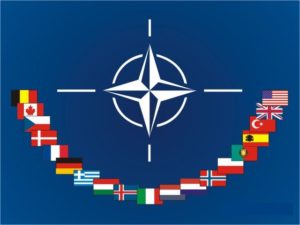 In an era of austerity, US defense is facing cutbacks, or to stick with the administration’s euphemism, the US military will become “leaner”. This much is clear following the release of the latest US defense review, Sustaining US Global Leadership: Priorities for 21st Century Defense.
In an era of austerity, US defense is facing cutbacks, or to stick with the administration’s euphemism, the US military will become “leaner”. This much is clear following the release of the latest US defense review, Sustaining US Global Leadership: Priorities for 21st Century Defense.
Most would agree that defense spending cuts are only natural, considering the winding down of two land wars by a military that outspends the military of the next 10 countries combined. But before we soft power enthusiastic Europeans get too carried away, it is worth taking a look at what these cutbacks will mean for Europe.
Cutbacks necessarily mean prioritization of available means. If there were doubts as to where the US intends to focus its resources, the defense review made it clear; the Asia-Pacific will be given top priority while the Middle East and South Asia also will be areas of special focus. Europe‘s days as US priority numero uno are long gone. With defense cutbacks that fact will now become apparent.
Although the defense review in diplomatic terms calls “most European countries producers of security rather than consumers of it”, and underscores its commitment to NATO and Europe, between the lines the intention is clearly that Europe must take on a larger share of its own security responsibilities. Some US commentators, particular those on the right, are less diplomatic, condemning Europeans for skimping on defense, taking advantage of the US security umbrella, while they instead spend on welfare.
Although I believe a pretty solid argument could be made for a more holistic approach to security than the one mentioned; i.e. that the strength, stability, and security of a country has as much to do with the wealth and wellbeing of a society as whole as its military, it would seem that Europe must now get serious on defense if it intends to exert influence in its own neighborhood.
The EU’s own security strategy, A Secure Europe in a Better World, has building security through the development of democratic government and the rule of law as one of its central aims. However, the intentions set forth in A Secure Europe in a Better World have largely proven beyond European capabilities. In particular, the intention of providing “robust intervention” has proven illusory.
The NATO led action in Libya, for example, demonstrated the limits of European nations’ logistic capabilities. Ammunition had to be bought from the US, likewise US refueling and intelligence capabilities were relied heavily upon. As for coherence, Europe’s most powerful nation, Germany, chose to sit Libya out, making a mockery of a common EU defense policy.
In a time when the only effective security institution at Europe’s disposal, NATO, is being downsized, and no sign of the EU becoming better at pooling its military assets, it would seem that Europe will find it even harder to make its preferences felt in the future. Even with this being the case, the time is not ripe for raising defense budgets. Regardless that less security will be provided by the US, European constituents would not appreciate cuts in education, hospitals, and pensions while defense appropriations go up. Furthermore it is hard for the US to put pressure on Europe to increase its defense budgets, while the US itself is cutting back.
And what do the cutbacks mean for NATO? Thomas Valasek of the Centre for European Reform points out that as forces on both sides of the Atlantic are slashed, NATO’s security guarantees will increasingly lose their credibility. It doesn’t seem unreasonable to see the US shift toward the Asia-Pacific, coupled with the transatlantic defense cuts, as the beginning of the end for NATO as we know it. Instead of an institution of collective defense, NATO will be the framework within which smaller coalitions of the willing operate.
So, perhaps Europe must seek out alternative security arrangements for itself? For example, smaller coalitions formed around core nations on more or less ad hoc basis, coupled with intergovernmental asset sharing agreements, such as the French-British talk of coordinating aircraft carrier patrols. Regardless of the desirability of such solutions, considering the current state of the Common Security and Defense Policy, solutions outside the EU framework would seem the only way forward.